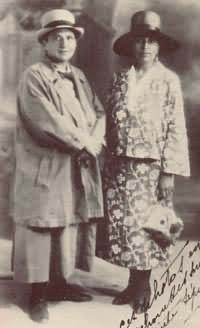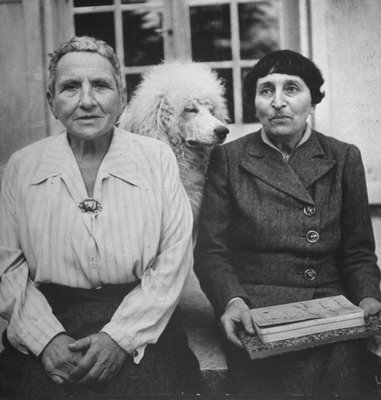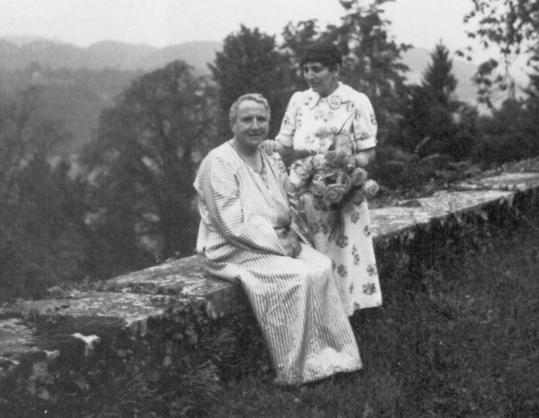Serendip is an independent site partnering with faculty at multiple colleges and universities around the world. Happy exploring!
Notes Towards Day 24: "too often, words limit and deny..."

I. coursekeeping
* welcome back!
* sign-in sheet
* you posted several "unbinding feminism" stories from Thanksgiving break:
Taylor 11 gave her a family gender studies lecture on “preferred gendered pronouns” (PGPs)
Pialamode314 had an experience in the phone store about “marketing to women”
Cat questioned Pialamode’s and her own inclination to “silently fume” during such encounters:
“Are we aiding the system because we're not correcting misconceptions?”
Nia.pike wrote about sexist Christmas cheer: “let's use the appearance of these songs to
initiate conversations about sexism in our society with our family and friends”
EP: The romanticization of sexist ideas by these songs makes it difficult to discuss
why they are problematic with family and friends
--this question of taking feminism to the street, or to store, or the family dinner table,
might be another way to get into the question of "unbinding feminism":
taking it beyond the academy, and academic presumptions: making it accessible
(like The Gender Workbook tried to do...)
--in any case: come to class on Thursday ready to talk w/ others
about your third 5-pp. web event, on "unbinding feminism,"
which is due this Sunday @ 5 p.m.: the more you bring, the more you
can get feedback on: a question, an assertion, a structure...
* N.B.: pialamode's second web event got a response from UWisconsin!--> Queer Students of Color Event
Lots of other end-of-semester events to review!
--next week, you need to schedule a conference w/ me to discuss your final
project for this course: a 10-pp. web-extension of one of your earlier projects
----the final project itself is not due til the very end (12:30 on Th, 12/19), but, as
w/ your first paper, I will not accept it unless we have discussed it together first
--same rule as before: come w/ a proposal that you're not too wedded to,
because we will brainstorm it together...but do come w/ a proposal...
NEXT MONDAY the 9th WOULD BE AN ESPECIALLY GOOD DAY FOR THESE CONFERENCES;
Wed is an option, too; and I'll probably have some office hours on the weekend as well;
so please email me to schedule a time...
--what will also be due next week is your final in-class reflection/performance,
in which we demonstrate/teach each other what we have been learning:
you should get yourselves organized into small groups, spend some time telling
one another what you thought was interesting/useful/growth-inducing in the class,
and then figure out a way to share your reflections on your experiences, encouraging,
in a provocative and entertaining way, further exploration on the part of others in the class....
(there are examples over Serendip: songs, poems, posters, plays, mantrafestos...Cat?)
We will also take some time for you to hook up with/confirm your groups in class on Thursday,
when I'll ask to know who you'll be working with, though not what you will be doing,
so I can make up a schedule:
1/2 of you will "teach" next Tuesday, the other 1/2 on Thursday, the final day of class.
Questions about any of these (or other) end-of-semester requirements?
the instructions for preparing your final portfolio are on-line, and self-explanatory,
so you should come to your conference w/ any questions you have about that....
II. Some other Sunday night postings...
several of you, spurred by Wendy Brown and Judy Butler,
continued to reflect on the role of mourning in feminist politics;
only one of you really "bought" Butler's argument about our shared precarity:
Ccassidy: my relationships have played a huge role in defining and discovering
who I am as a person.…social dependence as a means of creating a “self.”
the rest of you showed some serious resistance/asked some probing questions:
Amoylan: I think it is important to understand the difference between mourning and grief…There is a privilege in mourning from a economic point of view, can you afford to take the time off from work, can you pay for therapy etc. but everyone has their losses and everyone will need to grieve…
sschurtz: she did not address religion. We may all die but many people believe in life after death. It’s hard to make mourning and death an equalizer if people don’t agree that death is the end.
iskierka: Butler should be correct in that death should be the one thing that makes every human equal, [but] death is soiled by contexts and legacies that do inevitably lead us to question the value placed on certain deaths over others.
Ari: some deaths are more celebrated and honored than others…whose lives werent as revered…who lose their lives everyday under severe circumstances.
Kwilkinson: Trayvon Martin's symbolized that black bodies are not valued by American society--that we don't count. Although his death did create some type of political coalition, it was relatively brief and heavily racialized--certainly not a place for common ground.
Looking forward, to The Book of Salt, we see again (in the words of June Jordan, in an essay
on the surprising disconnections and connections amongst us) that "partnership in misery
does not necessarily provide for partnership for change."
Cynthia Wu on “The Ungrateful Refugee's Queer Desires: Where is the
Vietnam War in Monique Truong's The Book of Salt”? (BMC, 11/18/13).
And so...where are WE in relation to this text?
Polly: In The Book of Salt, the narrator sometimes speaks to a "you," using second person. I'm not used to this point of view when I read a novel, and it surprised and confused me. I'm not yet sure who Bình is talking to in the book. The use of second person makes the book seem like a personal story or letter that I am looking in on. However, I do not feel like I am invading Bình's privacy. I think that is because the "you" only comes up once in a while. I also am getting a sense of mystery while reading this book, because of the point of view (who is he talking to and why in the middle of the narrative) and because the time seems to jump around, like in Eva's Man. I am enjoying the book so far, and unlike while reading Eva's Man, I'm not constantly trying to put a normative order to the narrative. I think my favorite part of the book is the treatment of language. I'm reading a book written in English but the characters are speaking, living, in French and Vietnamese as well as English.
So (prodded by Polly) I want to start by attending to the language.
Let's get @ Bình's by trying out our own...
Write a paragraph describing this image:

"Quinces are ripe ... when they are the yellow of canary wings in midflight .... But even then quinces remain a fruit, hard and obstinate ...until they are simmered, coddled for hours above a low, steady flame....a color you can taste...love is not a bowl of quinces yellowing in a blue and white china bowl, seen but untouched."

"I am ... enthralled by her upper lip with its black hairs twitching gently as she speaks. Her moustache, I think, would be the envy of all three of my brothers, who could only aspire to such definition after weeks' worth of unfettered growth. The arc of hair, like a descended third eyebrow, is topped by a solemn monument to the god of smells. Protruding from her forehead, abruptly billowing out as it reaches her eye sockets, it is not so much a nose as an alterpiece that segregates the left side of her face from her right. Moving northward, her facial features disappear underneath a skullcap of hair, dark, absorbing the late-afternoon light. I am overwhelmed by the intrusiveness of it all until I look into her eyes. They live apart from their housing. Chasing the light that gilds this city in early autumn, her irides are two nets gently swooping over a band of butterflies. Catching the light, the circles erupt, bright with movement, the flapping and fanning of many colored wings" (The Book of Salt, p. 25).
How is Truong using language?
How would you describe her/Bình's descriptions?
How make sense of them, in light of Gertrude Stein's aesthetic?
"Pointless overdecoration, GertrudeStein explains, thinking of the commas and periods she has plucked from the pages of her writings. Such interference, she insists, are nothing more than toads flattened on a country road, careless and unsightly. The modern world is without limits, she tells Miss Toklas, so the modern story must accomodate the possibilities--a road where she can get lost if she so choses or go slow and touch each blade of grass." (28)
"My comprehension...is based mostly on my ability to look for the signals and intepret the signs. Words...are convenient, a handy shortcut to meaning. But too often, words limit and deny" (117).
[Perhaps because of this?] the novel relies on photographs to open and end: what does that accomplish?"Of that day I have two photographs and, of course, my memories...." (p. 1)
  |
GertrudeStein and Miss Toklas are perched on the bench ahead of me. My Madame and Madame are posing for a small group of photographers who have gathered for the occasion. GertrudeSein looks almost girlish. The folds
of a smile are tucked into her ample cheeks. Miss Toklas looks pleased but as always somewhat irritated, an an oyster with sand in its lips, a woman whose corset bites into her hips...."



"She wants to see the stretch marks on my tongue..."
Cf. Kathy Acker's "Seeing Gender":
"What if language need not be mimetic?"
...if "language has no discernible mimetic meaning"?
"Literature is that which denounces and slashes apart the
repressing machine at the level of the signified."
"Stein's poetic...repeatedly overturns moments of clear referentiality..."
REALLY: CAN words be non-referential?
Can they NOT signify?


